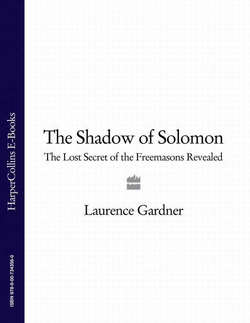Читать книгу The Shadow of Solomon: The Lost Secret of the Freemasons Revealed - Laurence Gardner - Страница 31
Legal Exemption
ОглавлениеDuring this period, and following the French Revolution (1789-99), an innovatory concept of voting was put forward by the British author Thomas Paine in his The Rights of Man. He suggested that people should have the right to appoint and change their own governments. This was too much for the Georgian politicians—Paine was indicted for treason and fled to Calais in 1792. By that time, almost every town in Britain had a Constitutional Information Club, or a Society of Friends. In 1793, the British Convention of People’s Delegates was held in Edinburgh and, in response to their plea for better workers’ representation, the Government duly transported the leaders to the colonies. Hostilities were then commenced against the French who, along with the Americans, were said to have fuelled a widespread anti-Hanover mood in Britain.
Subsequently, the long-standing Habeas Corpus Act was suspended by prime minister William Pitt (the Younger) in 1794, so that citizens could be kept in prison indefinitely without need for trial. Following Pitt’s Unlawful Oaths Act of 1797, Government spies roamed the country, bringing in anyone who belonged to a workers’ group that Westminster deemed seditious, and they were duly sentenced without a hearing. (It was under the terms of this Act that the Tolpuddle Martyrs of Dorset were arrested long afterwards in 1834, and charged at the Dorchester Assizes with ‘administering unlawful pledges of loyalty’.) Even the Royal Navy did not escape the harsh judgements in 1797. Most sailors were pressganged into service, only to be treated abominably with miserable pay and conditions. But when seamen of the Fleet at Nore (near Sheerness) demonstrated for a revised ship-board policy and a grant of two meals a day instead of one, their leaders were hanged.24 At this time, Britain was in a desperate position; France had conquered the Netherlands, and controlled the Dutch Fleet. France had also made an alliance with Spain, and practically controlled the Spanish Fleet.
Then, within a general stirring of public unrest, Pitt made it unlawful to speak, write or to have any opinion against the Government. He sent German troops into Ireland in 1797, prompting an Irish rebellion in the following year, which led to the arrest and death of the prominent leader Lord Edward Fitzgerald. Pitt then introduced the Unlawful Societies Act in 1799, whereupon workers’ groups and unlicensed public meetings of any kind were forbidden anywhere in Britain. The coming together of men into any form of club or society for negotiation of improved working conditions or wages was henceforth defined as a punishable conspiracy. In fact, any organization which held secretive meetings came under the wrap of this Act which, potentially, could have closed all the masonic lodges. Given the royal patronage that applied, however, Pitt was pressured and obliged to relent in favour of Grand Lodge so that Freemasonry was made uniquely exempt from the law.25
